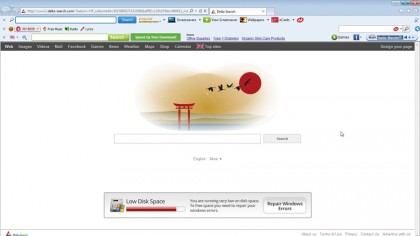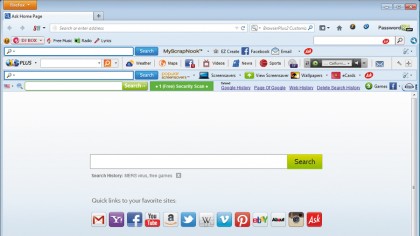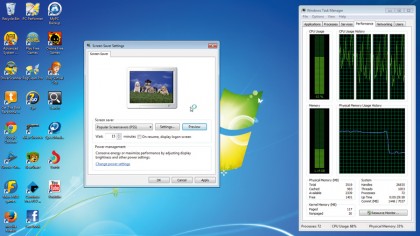Can free software kill your PC?
Adware's rise and rise

While much was made of malware and adware in the early 90s and 2000s, it seems nothing has been done to stop the proliferation of adware. All the software we tried was happy to work on a modern Windows 7 system and alongside the latest incarnations of all the browsers. Despite the security features browsers come with, it's easy to allow add-ons and plug-ins to change the default search engines and add their own toolbars.
Quite quickly, we stumbled across competing systems trying to wrestle back control of the default search engine - with plenty of pop-ups, from the system dialogue to their own built-in warnings about other programs attempting to change settings.
The unnecessary and annoying browser toolbar is one of the most favoured means for companies to crowbar their way into your life. It's an effective and ever-present advertising strip, in which companies can inject their adverts and services - all the while looking like a search service.
One bright-red banner informed us we had "6 massages" (sic) waiting for us, which aptly enough swooped us off to a dating site - fun times ahead. Another popular approach is the use of adverts that proclaim your PC has a threat or is running low on space. It uses the phishing technique of looking like a legit system dialog with a button to fix the problem.
We stumbled across a number of these on our journeys and decided to install a couple to see what the result would be. It's ironic to be told by a system-hogging diagnostic program you're unable to quit and runs itself, on top of starting alongside Windows, that your system is slow. We also at one point had both installations launching at the same time, running in tandem.
The result

It took less than an hour to bring the system to its knees. It wasn't long before FireFox and Internet Explorer were both crawling and at times unusable, seemingly frozen with add-ons. Chrome seemed to handle the issues a little better, and oddly one of the extra installed packages was the Chrome-styled Torch browser, which seemingly dodged a lot of the bullets.
In real terms, boot times doubled to more than 40 seconds. More annoyingly, various programs demanded boot-time attention, requiring administrator approval to run. Other programs simply had pop-ups that remind you how you should sign up for their services.
Sign up for breaking news, reviews, opinion, top tech deals, and more.
One program, Pokki, which seems a legitimate app service, decided to consistently crash on start-up, despite initially working fine. FireFox appeared to have an extra six toolbars, a new start page, a new search default and a number of extra toolbar icon tools.
Internet Explorer faired the worst, with seven new toolbars, alongside a new homepage and search engine with 24 add-ons. Chrome managed to dodge some of the issues, but it still had a new homepage, a couple of new tool icons and greatly increased memory usage.

The system impact of this was the start-up memory jumping to 1.1GB - up 600MB. With all three browsers running, this grew to 1.8GB - more than 1GB over the basic installation. Individually, Internet Explorer was up 126MB to 150MB, FireFox was worst hit at 186MB from its original 46MB, and Chrome had done pretty badly, leaping from 27MB to 135MB.
What these figures don't get across adequately is the extra burden these additions put on your browsers. The start-up times for both FireFox and Internet Explorer became excruciating. At times, we had to abandon one or the other, as the browser froze in place. This wasn't a permanent state of affairs, and we could gain access to the add-on managers, so that a clean-up could be made possible. More troubling was that the processor usage appeared to be running at over 30 per cent, despite nothing running. With FireFox open, it consumed an additional 25 per cent, while doing nothing. This created an idle processor load of almost 60 per cent.